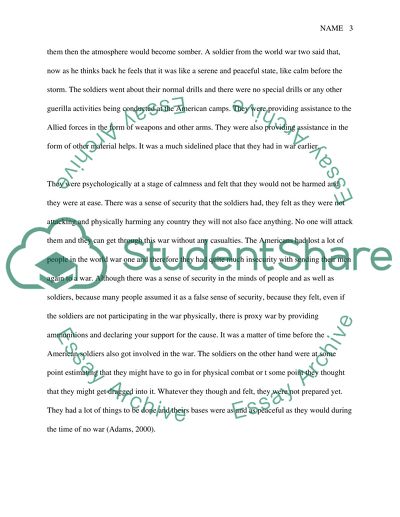Cite this document
(“The Attitude of the American Soldiers during and after World War Two Essay”, n.d.)
Retrieved from https://studentshare.org/history/1448509-the-attitude-of-the-american-soldiers-during-and
Retrieved from https://studentshare.org/history/1448509-the-attitude-of-the-american-soldiers-during-and
(The Attitude of the American Soldiers During and After World War Two Essay)
https://studentshare.org/history/1448509-the-attitude-of-the-american-soldiers-during-and.
https://studentshare.org/history/1448509-the-attitude-of-the-american-soldiers-during-and.
“The Attitude of the American Soldiers During and After World War Two Essay”, n.d. https://studentshare.org/history/1448509-the-attitude-of-the-american-soldiers-during-and.


